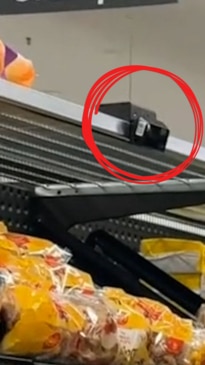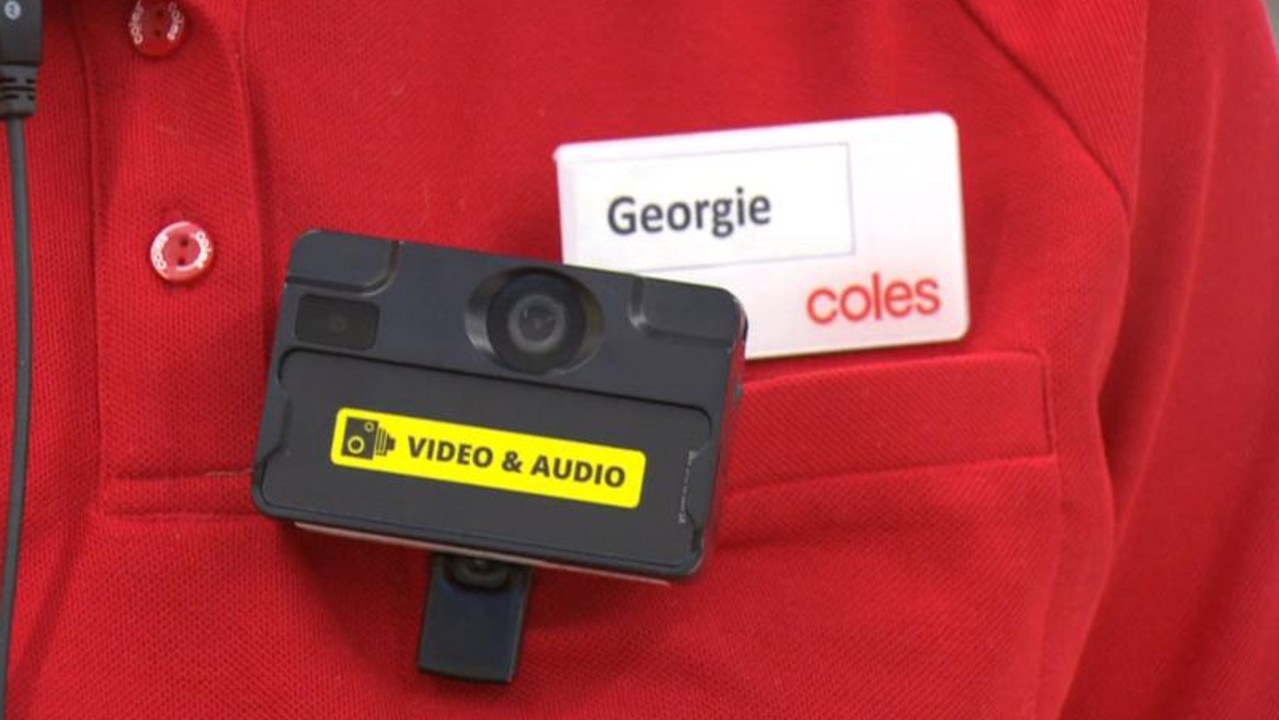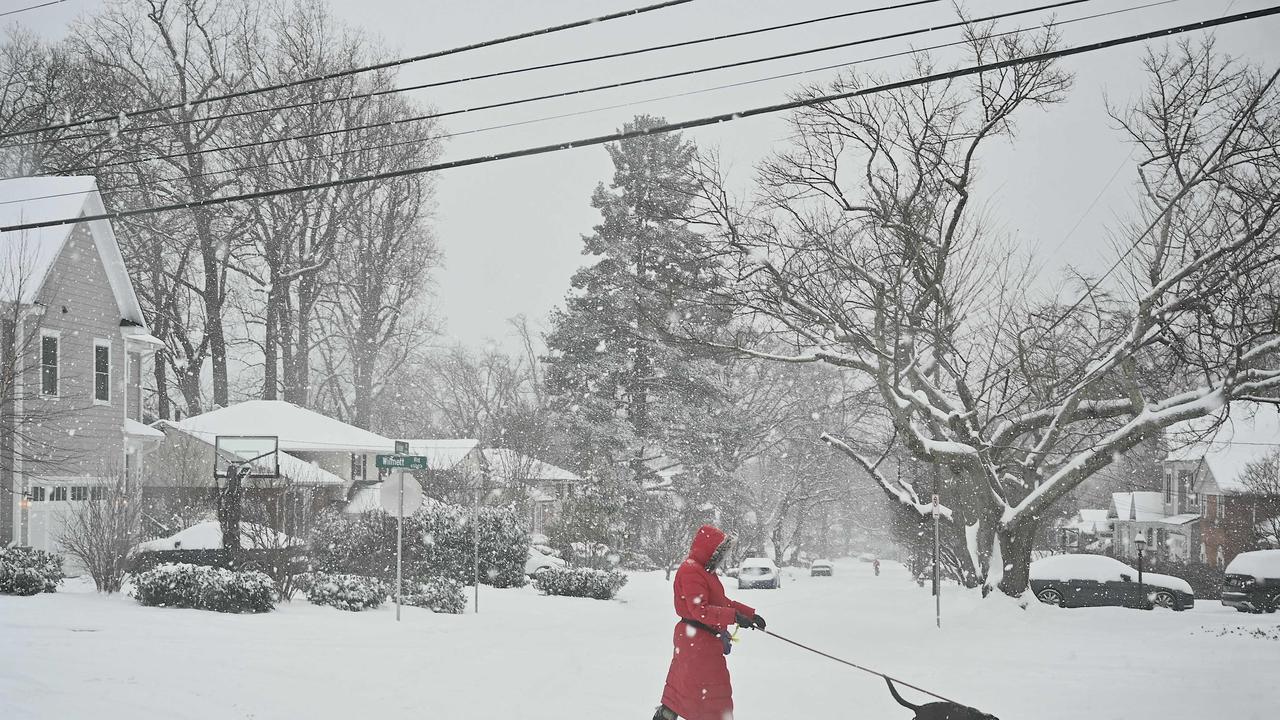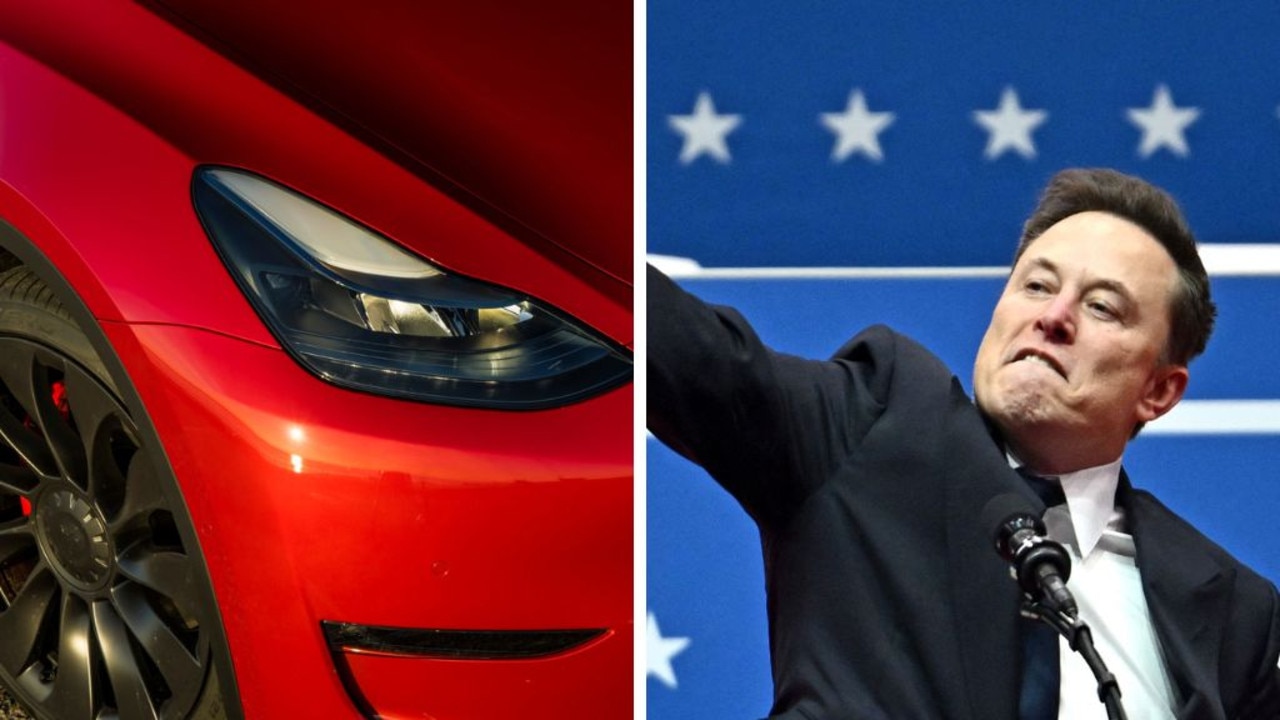Coles, Woolies ramp up surveillance tech in supermarkets to stop abuse, theft
Behemoths Coles and Woolies are spending millions on new body cameras and hi-tech scanners and there’s growing unease about the scale of surveillance.

A brave new world of hi-tech surveillance is sweeping through Australian supermarkets, with retail behemoths Woolworths and Coles investing millions in more cameras.
But the “Big Brother” experience of being watched and scanned while shopping has left some customers anxious, with social media channels like TikTok exploding with videos of people complaining about the new measures.
TikTokker Fergus Neal said he was “out” after discovering Coles would introduce body-worn cameras to its stores.
“I’m not walking into a Coles store and seeing a minimum wage cyborg with a camera on their chest, that’s crazy,” he said.
“I don’t want to live in a place like that.”
Consumer behaviour expert Professor Nitika Garg from the University of NSW emphasised there was not a “dangerous motivation” behind the increased surveillance but it was generating substantial unease in customers.
“It is only a recent phenomenon where you can see your own image as your scanning items,” she said.
“I know what their motivation is but even then it makes you be a bit more self-conscious saying, ‘look, I‘m scanning the right variety of tomato here. Not scanning the cheaper version’.
“We knew they always had cameras in store but I think is a new one and it is a very blatant signal to the consumer: ‘look, we are watching and please do the right thing’.”
The companies are introducing more cameras to prevent stock loss, theft and abuse.

Retail workers, often young workers on comparatively low pay, can suffer abuse from customers and Coles and Woolworths are rolling out body-worn cameras for customer-facing roles as a measure to protect staff.
Woolworths’ earnings report for 2023 states it will invest more than $40m in CCTV upgrades, body cameras and wearable duress devices “to improve safety for our teams”.
It is understood the body cameras are not used to reduce stock loss or monitor shoppers and are not permanently switched on.
Workers have the option to switch them on if an interaction with a customer edges towards abuse.
Coles’ 2023 annual report notes total loss, which includes stock loss, waste and markdowns, had jumped 20 per cent year-on-year and “remains an industry-wide headwind, with elevated levels of organised retail crime and customer theft from cost of living pressures.”

Woolworths has also recorded a rise in stock loss from theft and will roll out its Scan Assist technology in 474 supermarkets by the end of the year to support accurate scanning.
“We have a number of initiatives that we use, both covert and overt, to help reduce retail crime which currently mirrors a level that we experienced prior to the Covid pandemic,” a Woolworths spokesman said.
“These initiatives include the use of camera technology at the checkouts, double welcome gates, CCTV and a trial of gates at the exit to our self-serve checkout area.
“We use technology such as team safety cameras and VR Training modules to both support and prepare our team members for instances where they may feel unsafe.
“However the majority of our customers do the right thing and treat our team with respect and we thank them for doing so.”
The move to heightened tech surveillance follows from the general shift to automation at the big retailers, with fewer workers on the ground at check-outs to scan items and monitor shoppers.
Professor Garg warns the big supermarkets could damage their long-term brand loyalty and bleed customers to competitors without a better communication campaign explaining the changes.
“They might think this is a non-issue,” she said.
“The reality is yes, we do not have an option right now but people who think it is a viable option have moved to places like Aldi, or IGA and some of us might do that once other options do become available.

“We don’t know what kind of shift we are seeing to the local green grocers.”
Professor Garg said the retailers could put up noticeboards in stores, send out emails and put on more staff on the ground to help customers better understand why they were investing in increased surveillance.
“They can afford to do this and they are just missing that opportunity by just letting this negative emotion and unease simmer in the consumer base,” she said.
Customers also need to know the data will be properly secured, Professor Garg said.
In a media call for the company’s latest earnings report, Woolworths CEO Brad Banducci said the retailer was trying to strike a “delicate balance” between rising angst over surveillance, a frictionless shopping experience and team safety.
“It is a thing that we spend a lot of time talking about and we make adjustments as we go,” he said.
“The one thing I should be unequivocally clear on is privacy...there’s no ability to compromise individuals’ privacy in the process, so that is a non-negotiable for us.
“The rest is a trade-off just between, as I say, friction for our customers and safety for our team and it is something that we’ll continue to monitor and continue to adjust on an ongoing basis.”
Coles did not respond to questions by the time this article was published.




